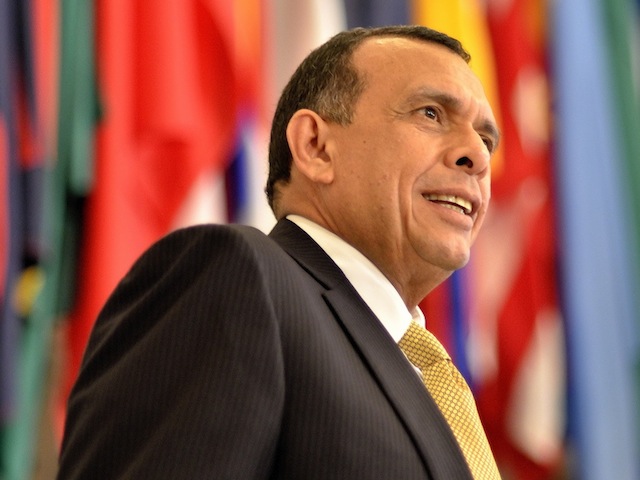
Colombia, Latin America: Week in Review
Colombia Disbands Intelligence Agency Following Scandals
November 1, 2011 By Staff
Today in Latin America
Top Story — Colombian President Juan Manuel Santos announced the official end of his country’s scandal-ridden intelligence service Monday. The announcement does not come as a surprise, given that Santos had already said he would replace the agency, but it marks the official end of the controversial Administrative Department of Security (DAS) — an institution whose numerous scandals in recent years caused political problems for the outgoing administration of Alvaro Uribe (2002-2010).
Jorge Noguera, the first head of the DAS under Uribe, was convicted last month of collusion in the 2004 murder of a leftist university professor. Uribe’s former chief of staff Bernardo Moreno awaits trial for allegedly ordering the DAS to spy illegally on political opponents, Supreme Court justices, journalists and human rights workers. Another DAS director under Uribe, María del Pilar Hurtado, secured political asylum in Panama to avoid facing charges similar to Moreno’s.
When it became apparent the Colombian government would shut down the DAS, some of the agency’s employees began selling the agency’s classified documents, leading to the greatest intelligence leak in the country’s history, according to Colombian magazine Semana. While fear of unemployment reportedly prompted the leak, Santos said Monday that the 6,000 DAS employees would move to other ministries, with about half joining the federal prosecutor’s office. In his speech, Santos sought to boost the reputations of DAS employees. “A lot of people in the DAS have been stigmatized, unjustly I would say,” Santos said. “So many law-abiding people shouldn’t pay for a few sinners.”
Read more from the Associated Press and learn about the DAS’ background in this piece from the Latin America News Dispatch.
Headlines from the Western Hemisphere
North America
- The New York Times has the latest on attempts by the hacker group Anonymous to recover a member allegedly kidnapped by the Zetas drug cartel.
- The municipal cemeteries of Tijuana, Mexico, are filling up due to population growth and high levels of violence.
- Mexico City’s Paseo de la Reforma is looking good after a two-mile section got replanted with orange marigolds, The Los Angeles Times reports.
- The Justice Department filed a complaint in federal court challenging a South Carolina law cracking down on illegal immigration, saying it unconstitutionally infringes on the federal government’s authority.
Caribbean
- Now that Cubans can buy and sell cars, they are driving hard bargains.
- The raucous trial of 13 police officers accused of committing murders during a prison massacre last year is drawing attention to the issue of rule of law in Haiti.
- Miguel Pereira, the former head of Puerto Rico’s Police Department and a candidate for the island’s Senate, said Monday the island has turned into a “narco state.”
- A Dominican judge ruled Monday that an American surf instructor and part-time model can be detained for a year without bail while prosecutors prepare a drug trafficking case against him.
Central America
- Guatemalan medical experts have deemed 80-year-old former dictator Oscar Mejía Victores too sick to stand for trial for genocide and war crimes.
- El Salvador cut its forecast for economic growth this year from to 1.4 percent from 2.1 percent, after heavy rains damaged the country’s coffee crops.
- A large cache of automatic weapons and large-caliber bullets has gone missing from a high security Honduran military base.
- The U.S. State Department said Monday it remained “concerned about apparent irregularities in the Nicaraguan electoral process,” as the Central American country prepares for Sunday’s elections.
Andes
- Gustavo Petro, a former member of the leftist M-19 movement who ran on a campaign of “zero corruption,” was elected mayor of Bogotá on Sunday with 32 percent of the vote.
- Peruvian President Ollanta Humala says that telecommunications giant Telefónica owes Peru $740 million in back taxes.
- Ecuador’s Minister of Strategic Sectors announced Monday that Venezuela and Chile are interested in purchasing hydroelectric energy from Ecuador.
- Peru and Brazil signed cooperation agreements on Monday.
Southern Cone
- Marcelo Freixo, a congressman from the state of Rio de Janeiro, said Monday that he was leaving Brazil due to death threats for his tough stance on crime and focus on militias comprised of off-duty and former police officers.
- The Argentine government on Monday released a new requirement that anyone trading pesos for foreign currency to prove that their taxes are up to date.
- Argentine trucker’s union Fetra went on strike Monday, blocking the shipment of grain to and from Argentine ports to demand increased transportation fees.
Image: Center for American Progess @ Flickr.
Subscribe to Today in Latin America by Email





